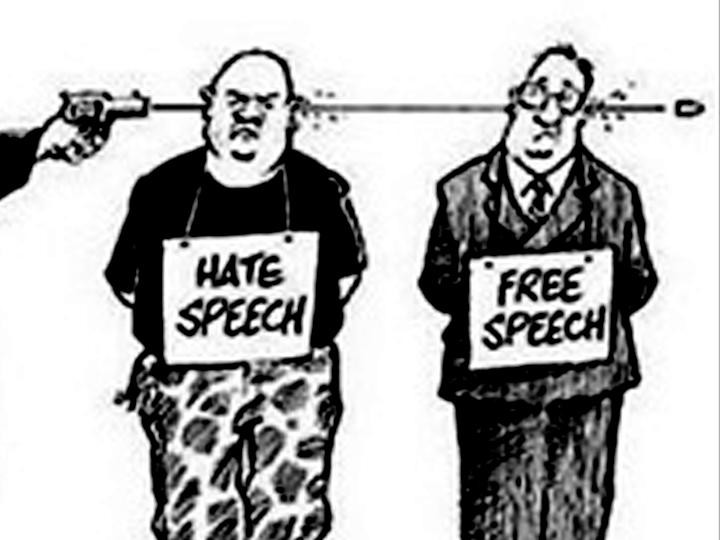Nowadays almost everyone is on social networks. With so many people providing and sharing content it is no surprise that a small portion of it consists of hate speech, extremism and sexual matter. On Twitter there is still targeted harassment and trolling, Facebook distances itself from fake news, but also does nothing to prevent them – it is a rather twisted understanding of freedom of speech. Nowadays politicians are undertaking a course to alter all of this.
First in this endeavor was Germany with its government proposing a €50m fine for social media companies whenever failing to delete abuse, slander, fake news or hate speech within 24 hours of its initial publishing. Interestingly, Europe is taking the driving seat in regulating social media – industry where all the big players are American.
While in the US freedom of speech is indefeasible, European law recognizes hate speech due to historical circumstances. German interior minister Heiko Maas recently stated that too little of inappropriate content in social media is deleted and even when this happens, it Is done rather slowly. Reporting practices are slow and ineffective. Germany is pressuring social media companies to battle fake news more rigorously. Strict sanctions will compel these organizations to delete apparent criminal content across the whole platform within 24 hours of its initial publishing. Other inappropriate data is to be removed within a week. Social networks are to publish reports on received complaints and how they were taken care of by their complaints team. When they do not meet the set requirements hefty fines are to be expected. All disputes are to be settled in German court in order to avoid differences in EU Members’ laws.
Maas mentioned in a speech that obvious lies are also protected under freedom of speech, but “freedom of expression ends where criminal law begins”. His argument is that social media companies are not simply mediums for information exchange, but responsible for what is conveyed through them.
According to different independent organizations, social networks delete between 40 and 80% of all illegal content in the first 24 hours, whereas German government’s initial target set will be at 70%.
German authorities are planning an EU-wide legislation, targeting abusive and criminal content in social networks and it will certainly be something we look forward to. The European Commission also informed Facebook, Google and Twitter to alter their terms and conditions in order to reflect EU consumer rules.
From a slightly different perspective, Germany might be worried the effect fake news could have on its federal elections this year given their correlation with the success of Trump’s campaign. There is also a large number of Refugees in the Federal Republic, being the object of increasing hate speech occurrences. The number of policy makers in the EU and US that want to see social network companies block harmful content is increasing, which will likely turn into a global initiative. On the negative side, this would give governments control over social media content. What constitutes hate speech exactly is also yet to be defined in criminal law in the United States.
One thing is certain – social media companies CAN battle fake news since they can do target marketing on us. The question is – will they do it? After all, it’s not nearly as profitable. Algorithms can distinguish hate speech content, but such a solution will make social network platforms slower, which in turn will hinder user traffic and ultimately revenue. Perhaps such an automated resolution can be implemented in the final stages of maturity and decline of product life cycles, which Facebook and Twitter have not yet reached.
On the one hand, requiring of social networks to self-manage inappropriate content will most certainly lead to “delete first ask later” policy in order to avoid serious fines. On the other hand, if western governments look over hate speech posts won’t this constitute posing limitations on freedom of speech?
Freedom of expression should have limitations if it leads to extremism. Also, developed western societies only lose to the emergence of fake news which seem like the tool for populist leaders to gain favor with the public. We have a responsibility to educate and advise less advanced users to stop using fake information portals.

